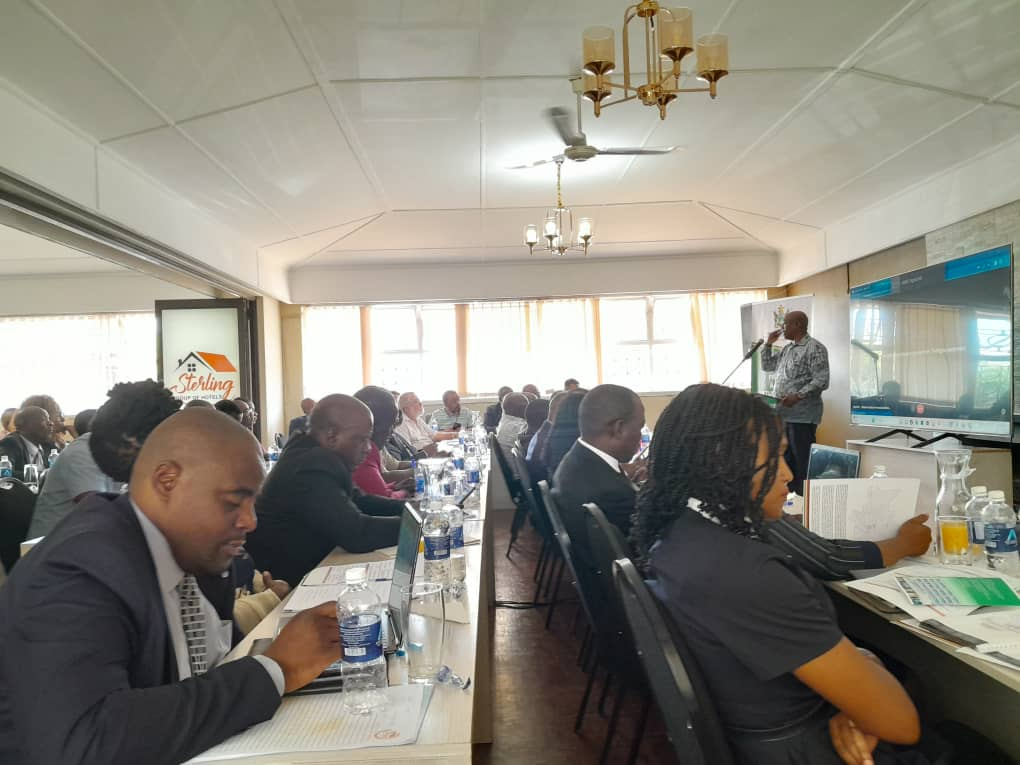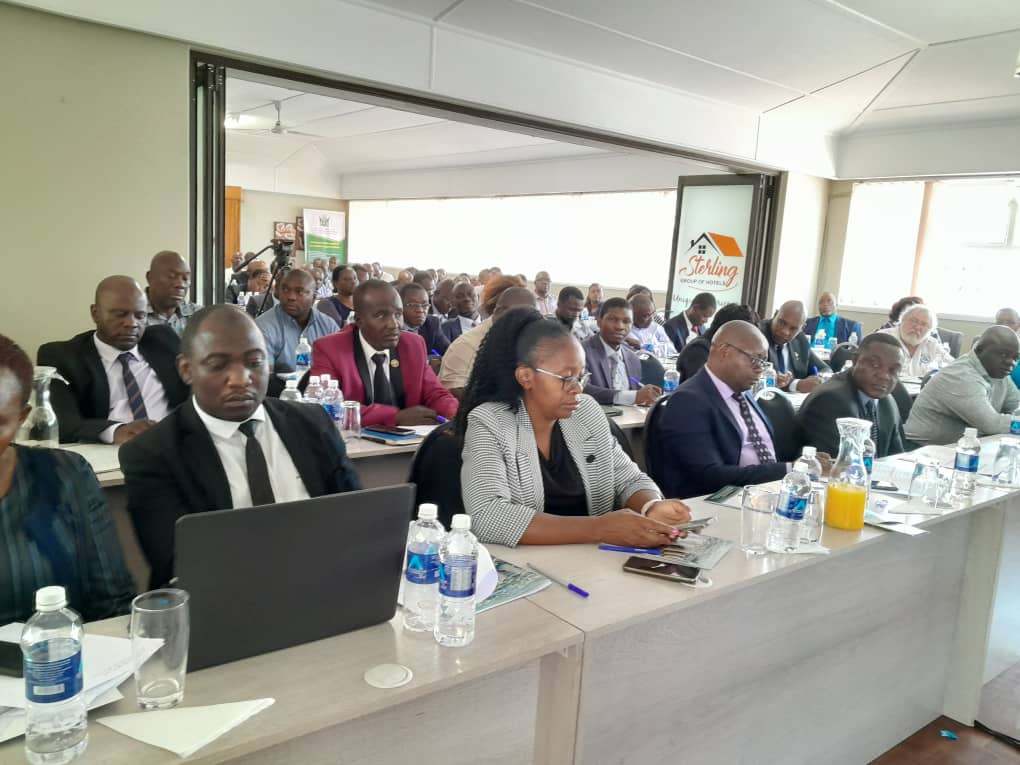Zimbabwe’s economy on a growth path, said Principal Economist
The principal economist at the Ministry of Finance and Investment Promotion, Mamvuto Mndola said that Zimbabwe is on the path to economic recovery and growth.
Presenting during the Bulawayo Investment conference held on Wednesday at Sterling Hotel, Mndola highlighted the achievements and challenges of the country’s macroeconomic stability and investment promotion, as well as the role of the ministry in facilitating and supporting different sectors of the economy.
He said that Zimbabwe’s economy had recorded strong recovery from the impact of COVID-19 and achieved high growth rates of 8.4% in 2021, 6.4% in 2022 and 5.2% in 2023.

Growth Trajectory
“Our focus is ensuring the economy remains on a positive growth trajectory. To achieve this, we need to implement measures to stimulate exports while managing inputs for long-term sustainability,” said Mndola.
The economy was doing well despite some risks to growth in 2023 emanating from the potential drought caused by El Nino phenomenon. He said that the ministry was working to create policy guidelines that would facilitate the growth of different sectors, such as real estate and mining, and move the economy away from being solely reliant on agriculture.
Moreover, outlining four major sectors of macroeconomic stability: external sector, fiscal sector, monetary sector and inflation. He said that each sector had made remarkable progress since 2019, with positive results in terms of current account balance, budget deficit, exchange rate and inflation.
The external sector had improved significantly since 2019, with the current account balance registering surpluses of US$390 million in 2021 and US$305 million in 2023. He said that positive current account balances provided foreign currency liquidity that was required to secure inputs for production.
The priority was to implement measures to stimulate exports while managing imports for long term sustainability. Additionally, saying that some of the measures included promoting value addition, diversification and competitiveness of exports, as well as reducing import dependency and enhancing local production.
RELATED CONTENT: Bulawayo Mayor On a Drive to Resuscitate Industrial Hub
Long Term Sustainability
He said that the fiscal sector had also achieved remarkable results, with the budget deficit being contained below 3% of GDP since 2018. He said that this achievement was attributed to fiscal consolidation measures that were implemented to curb expenditure overruns that were undermining macroeconomic stability.
“There is a need to intensify efforts of reviving the manufacturing sector as well as adding value to our agricultural and mineral products in terms of stimulating domestic demand and maintaining macroeconomic stability,” he said.
“Some of the issues that the fiscal sector was addressing included value for money in public spending, reviewing procurement processes and standardizing prices of goods supplied to government entities”.
He said that the monetary sector had also made progress in stabilizing the exchange rate and enhancing financial inclusion. He said that the introduction of the foreign exchange auction system in June 2020 had brought transparency and predictability in the determination of the exchange rate.

Inflation Drivers
All this has reduced speculative activities and parallel market premiums that were driving inflation. He said that increasing the demand for local currency would reduce the rate of domestic foreign currency sales, resulting in accessing payments from the market.
Inflation had been experiencing high levels driven by parallel market exchange rates, increased demand for US dollar as a store of value, speculative activities and money supply growth resulting in rapid increase in prices. He said that inflation had declined from a peak of 837.5% in July 2020 to 194.1% in March 2023.
He said that the ministry was implementing various measures to contain inflationary pressures, such as tightening monetary policy stance, improving fiscal discipline, enhancing productivity and competitiveness, and strengthening institutional frameworks.
The speak was concluded by saying that Zimbabwe’s economy was on a growth path, but there was still room for improvement. He said that the ministry was committed to promoting macroeconomic stability and stimulating investment opportunities in the country’s economy.
“We are open for business and we welcome investors from all over the world to partner with us in developing our economy,” he said.
#News in Bulawayo #News in Zimbabwe Artist Arts BCC Bulawayo Bulawayo City Council Bulawayo economy Bulawayo industry Bulawayo news Bulawayo Police Bulawayo Water Bulawayo Water Crisis Bulawayo Women entrepreneurship Business Women Cholera Community Culture Currency Drug Abuse Drugs Economy Farmer Farmers Farming Informal Sector Informal Traders Mining MSMEs Music News in Bulawayo News in Zimbabwe Police Police in Bulawayo Vendor Vendors water Water Crisis Water Shortage water supply issue Women entrepreneurship ZESA Zimbabwean economy Zimbabwe news Zimbabwe water crisis ZRP
Our stories told by us!
Join us for all News in Bulawayo and Bulawayo News in Zimbabwe.












